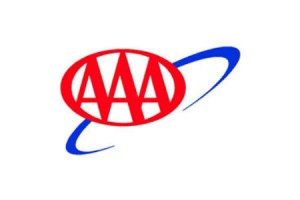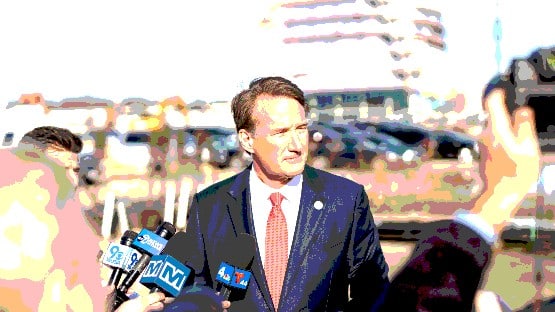New Year’s Day is almost here, and it’s a good time to look back upon the best and worst in transportation in our area during 2013. So it is time to rank and rant as we ponder the milestones and frown upon the millstones in transportation in Virginia, Maryland and the District of Columbia during the year that was 2013.
Fully Loaded Transportation Cupboards. In a rare alignment of the planets, lawmakers in three neighboring jurisdictions, Virginia, Maryland, and Washington, D.C., enacted landmark legislation during 2013 to adequately fund transportation projects into the future. Long story short: it means their transportation cupboards are no longer empty. The Virginia General Assembly gave the nod to long-term transportation funding for the first time since 1986. Regionally, it yields $2.6 billion in funding for projects in the state’s biggest population centers in Northern Virginia and Hampton Roads and another $3.5 billion in statewide funding. On the other side of the Potomac, lawmakers in the Maryland General Assembly passed the Transportation Infrastructure Investment Act of 2013. It raises $4.5 billion in transportation funding over the next six years. The District of Columbia Council enacted the “Motor Vehicle Fuel Tax Amendment Act of 2013,” which ties the city’s fuel tax to wholesale prices and ensures that the vehicle fuel tax rate will keep pace with transportation construction costs in the city. At long last, elected officials realize infrastructure is a worthy investment.
Gasoline Price Dipped. Unexpectedly, retail gasoline prices fell to a three-year low in 2013. The Energy Information Administration (EIA) is projecting that annual regular gasoline retail prices will average $3.50 per gallon this year, compared to $3.63 during 2012 (the most expensive on record), costing us an extra $2 billion to drive. We spent $481 billion on gas purchases in 2011. At one point this year we were heading for a national average of $3 a gallon, then prices inched upward before Thanksgiving. The EIA is forecasting gasoline prices will average $3.43 per gallon in 2014 and crude oil prices will average $95 per barrel next year. On September 17, we reached a painful milestone. That’s the day the national average price of gasoline surpassed $3.00 per gallon for the 1000th consecutive days for the first time on record. Come New Year’s day, the unbroken streak will surpass 1,106 days of pain at the pump.
Texting Law becomes Primary Offense. As of July 1, 2013, texting while driving became a primary offense for those that choose to do so in Virginia. Virginia lawmakers overwhelmingly passed HB1907 making texting behind the wheel a primary traffic offense. The new law allows police officers to pull and cite drivers for texting behind the wheel without first having to witness them violating another law and those who are ticketed will also face steeper penalties. Drivers who enter multiple letters or text as a means to communicate or who read a text message or email are guilty under the new statute. Fines for a first offense are $125 and $250 for a second or subsequent offense. Drivers convicted of reckless driving who are also texting could face a $250 fine.
For Whom The Bell Toll. The highway death toll dropped by 4.2 percent during the first half of 2013, according to preliminary data from the National Highway Traffic Safety Administration (NHTSA). Even so, some 15,470 persons perished in all forms of motor vehicle crashes betweenJanuary 1 and June 30, compared to 16,150 fatalities reported during the first half of 2012. It reverses a deadly trend from the previous year. However, during 2012, traffic deaths increased to 33,561 deaths from coast to coast, including 777 highway fatalities in Virginia, 505 total fatalities in Maryland, and only 15 in Washington, D.C Those are the grim statistics culled from Fatality Analysis Reporting System (FARS) data from NHTSA. Demographically, that is 1,082 more fatalities than occurred in 2011. The majority of the increase in deaths, 72 percent, occurred in the first quarter of the year. Most of those involved were motorcyclists and pedestrians. Deaths for pedestrians and motorcycle riders increased for the third consecutive year.
THE WORST: MILLSTONES
Single-Vehicle Crashes Prove Deadly. A troubling trend continues to manifest itself on roadways across Virginia, Maryland, the District, as well as the entire nation. It is the disproportionately high number of single-vehicle crash fatalities. Here are the latest numbers. Last year, 2012, such crashes claimed 496 lives in Virginia (which comprised 63.8 percent of the 777 total highway fatalities in the state). In Maryland, such crashes accounted for 273 lives lost (out of 505 total highway fatalities or 54 percent). Single-vehicles crashes claimed seven lives in Washington, D.C. during 2012 (out of 15 total fatalities or 46.6 percent). All told, 3,872 persons perished in traffic mishaps in Washington, D.C., Virginia, and Maryland between 2009 and 2011. Of this toll, some 2,380 persons were killed in single-vehicle crashes. As such, these crashes often have multiple causes.
Million Dollar Mile. It’s called the “Million Dollar Mile” because of its notoriety for issuing millions of dollars in speeding tickets each year, mostly to out-of-state motorists (nearly 75%) and primarily on weekdays. Lambasting it as a “speed trap,” outraged motorists have been taking to the internet about Hopewell, Virginia and its penchant for issuing an average of 1,000 speeding tickets a month along a 1-2 mile stretch of Interstate 295 and netting over $150,000 per month. The town netted $2,056,387 in fines, according to reports in the Richmond Times-Dispatch and the Progress-Index(Petersburg). The controversy prompted Virginia State Senator John Watkins (R-Midlothian) to introduce legislation during the 2012 Virginia General Assembly Session to just to stop such practices along an interstate highway. Ultimately, that legislation (Senate Bill 500) died in committee. Yet, AAA Mid-Atlantic will continue to oppose such heavy-handed traffic enforcement tactics whether they take place in Hopewell, Virginia, in Prince George’s County, Maryland, or in Washington, D.C.
The Worst Type Of Gridlock: The Government Shutdown. Normally, less traffic would be a good thing in the Washington metro area, which suffers from the worst gridlock in the free world. However, the partial shutdown of the federal was a real disaster for politicians on both ends of Pennsylvania Avenue. It not only impacted the pocketbooks of federal workers and federal contract employees, it also had a tremendous impact on the region’s transportation network. It held up $74 million in quarterly payments from the District for Metro’s annual operating budget. Ridership dropped 20 percent as Metro trains operated with six cars, rather than eight cars, depriving the transit system of hundreds of thousands of dollars each day at the fare box. A study by Inrix found that outlying commutes into D.C. dropped by 10 to 50 percent, while trips inside the city remained about the same during the shutdown. On the other hand, one blogger at Uber, the app-based black-car service, charted the impact of the shutdown on the number of cross town trips in the nation’s capital. He carped, “the number of Uber work trips drop dramatically” during the three-week long shuttering of certain federal government offices.











